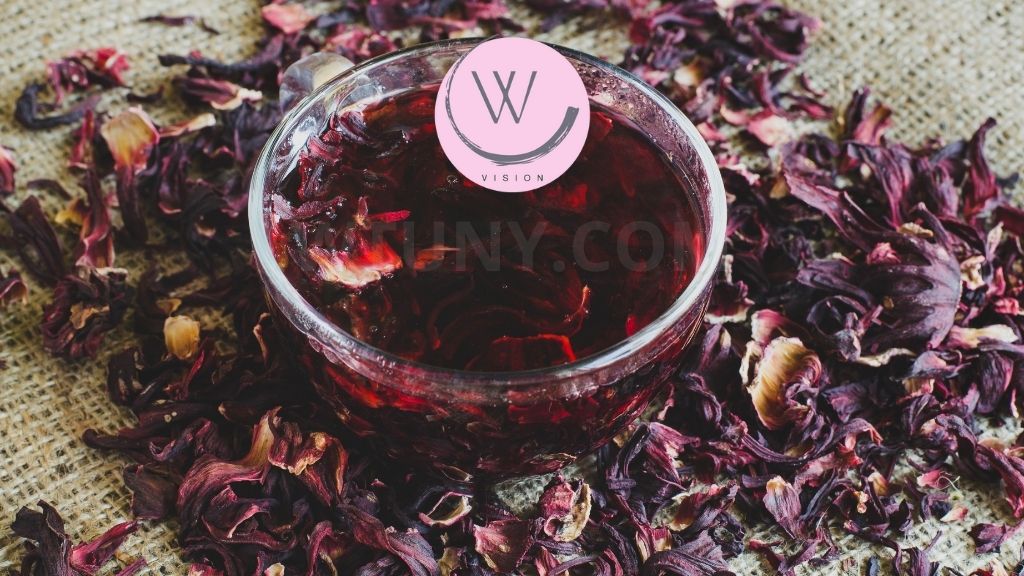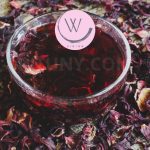Consuming natural hibiscus tea, an option for tea or coffee brewing, is especially popular among health-conscious people. It has a yellowish complexion and a bitter taste with a crisp aftertaste, which is lovely. Hibiscus is widespread in different parts of the warm tropics, e.g. Southeast Asia, Central America, West Africa, Southern Europe, Eastern Asia, and Indonesia. Hibiscus is mostly found in China, Thailand, Sudan, Egypt, and Mexico among other regions. Hibiscus is the botanical name while the local names include “crocella” or “red sorrel.” The fleshy red stem of hibiscus is readily enjoyed as hibiscus tea. Hibiscus is a lamb-quarters type of herbal tea that offers a berry taste. It is beautifully deep colored, lemony sweet, and somewhat tart with a hint of berry taste. Hibiscus tea has a set of health benefits. Let’s take a close look at these.
Properties of hibiscus tea:
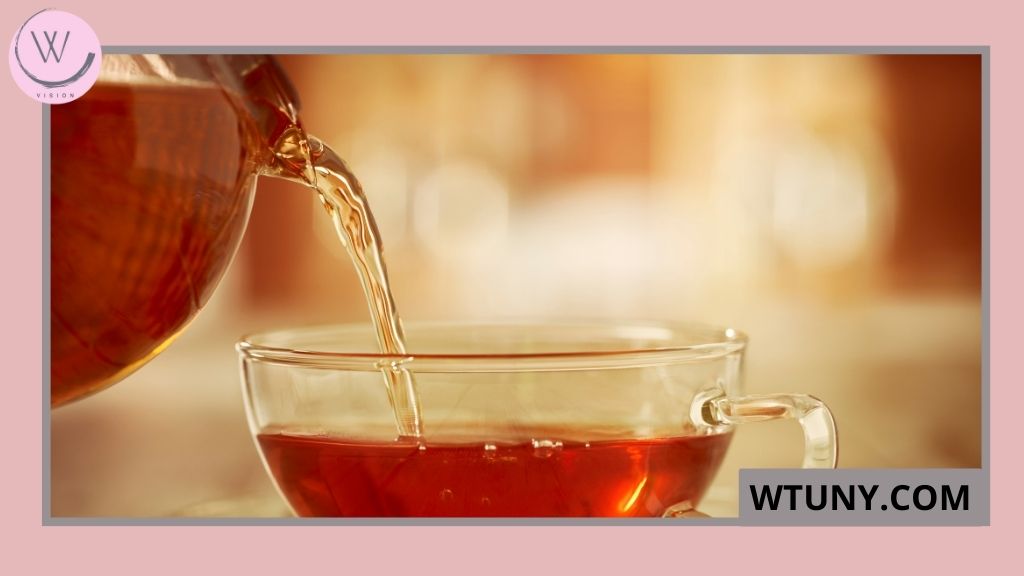
Many studies have proven that the properties of hibiscus tea can be as follows:
- It can be an independent factor in cholesterol-lowering.
- This is a potential action that it can cause.
- This action could lower blood sugar levels thus preventing chronic diseases.
- Some dyes have this unique effect to serve as an antibacterial agent.
- It could perhaps have antioxidant effects.
- It may contribute to how you manage your weight.
- Either it can prolong the life of one suffering from cancer, or the other one can be an anti-cancer substance.
- It can reduce inflammation
Potential uses of hibiscus tea for general health
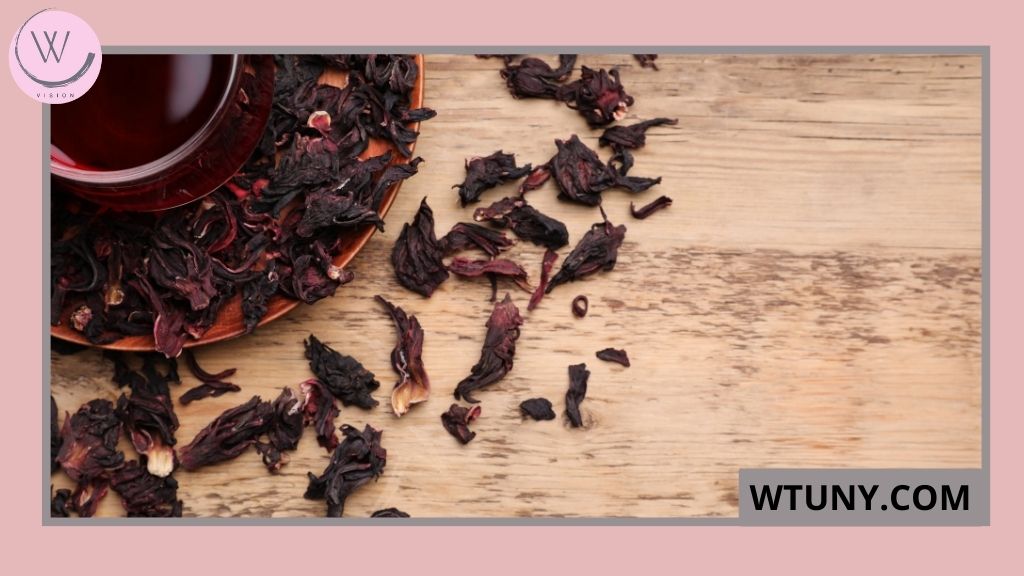
Some potential uses of hibiscus tea include:
1. Hibiscus tea could be proven to stabilize blood sugar.
As found by Jamrozek and associates (2022), polyphenols in hibiscus are good inhibitors of enzymes such as α-glucosidase and α-amylase that elevate the levels of blood sugar. These series of enzymes can process starches from different types of foods thereby elevating glucose concentration in blood after a meal. At this point, however, the researchers must carry out more studies designed to test whether drinking hibiscus tea will help their blood sugar levels to drop. For this reason, take your blood sugar level measurements often and urgently consult a . or a . in case of any abnormalities.
2. The possibility of using hibiscus tea For lower blood pressure
Mackay et al. In 2009, the same research was done and the investigators proved that hibiscus tea components like delphinidin-3-sambobioside and cyanidin-3-sodium can effectively lower blood pressure. Hibiscus is a vasodilator, meaning it facilitates the dilating of blood vessels’ walls to decrease tension on them. Despite this, it will decrease blood pressure. Nonetheless, there is a scarcity of clinical practice trials to determine the efficacy of hibiscus tea on lowering blood pressure. Lower blood pressure could be an early sign of an emergency, so don’t let it pass without having your blood pressure checked and consulting your doctor.
3. Hibiscus tea may reduce your bad cholesterol level.
Research by Sanadera. 2021 has shown that hibiscus tea consumption is connected to a drop in levels of LDLs (total cholesterol, low-density lipoproteins, and very low-density lipoproteins). Apart from that, it can raise the level of good cholesterol (high–density lipoprotein). It may be the fact of the antioxidant features of hibiscus tea # However, the condition of further clinical trials where hibiscus tea is used to conclude blood cholesterol levels is yet to be achieved. As a result, you may have a check of your cholesterol level and your doctor may help you in case of an elevated cholesterol number.
4. hibiscus tea to reduce inflammation
Radwan. In 2013, it was documented that the average people in the UK consumed only 25% of green vegetables. The hexoses contained in hibiscus tea can suppress the cyclooxygenase activity. Cyclooxygenase is an enzyme that contributes to prostaglandin build-up—the fatty acid compound responsible for the inflammation condition. There were no more experiments on humans to be conducted to find out whether Write a ten-sentence paragraph stating the main idea behind the following quote and your personal opinion on it: “To travel, is to take a journey into yourself”. In case you observe inflammation of the body, contact your doctor.
5. hibiscus tea for weight control
FJ Alarcón Aguilar. The anthocyanins in hibiscus-colored tea that were studied in 2007 mice demonstrated the effect in the animals to make them lose weight. Hibiscus tea is useful in fighting lipase enzymes found in fat storage sites, such as the stomach and pancreas, which lead to an increase in body fat. Therefore, these results also come from animal studies; However, More Human Studies are required. You should get diet advice from a nutritionist as a prerequisite for drastic dietary changes.
Other benefits of hibiscus tea:
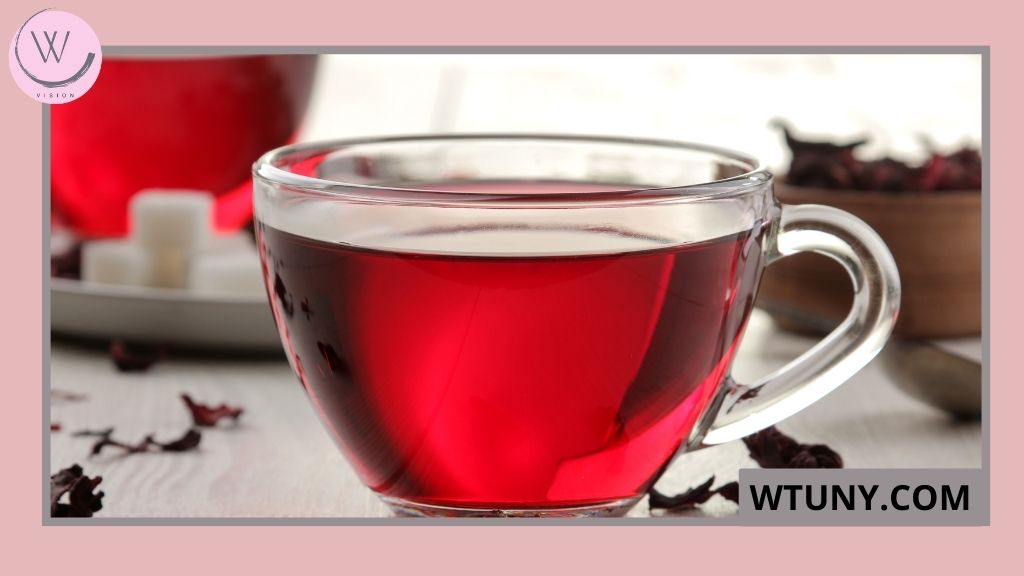
1. Benefits of hibiscus tea for men:
Hibiscus tea is one of those beverages that are filled with a great quantity or content of antioxidants. The antioxidant property of this super berry helps reduce inflammation as well as preach prostate health and the vitamin C content of these berries helps with boosting immunity. Moreover, as tea is proven to improve blood circulation, it suggests providing the body with more energy and strength. Continued consumption of hibiscus tea provides men with a natural relief and a refreshing approach to living a healthy and well-rounded lifestyle.
2. Benefits of hibiscus tea For women:
Hibiscus tea is important for menstruation as there are anti-inflammatory properties, which help in the case of menstrual discomfort. Ahead of the hive is the hibiscus tea which is Vitamin C intensive in nature therefore it enhances skin radiance and the immune system while the general health of women is improved since the tea contains no active ingredients that are suitable for growing children. Blending hibiscus tea with your daily schedule can be a simple yet scrumptious technique that ladies use to improve their well-being.
3. Benefits of hibiscus tea for hair:
Comprised of plenty of vitamins and antioxidants, hibiscus tea treats the hair roots well and facilitates the process of hair growth. The skin’s primary function is to prevent excessive loss of moisture and external impurities. The inclusion of hibiscus tea in your hair care arsenal will be helpful as it facilitates strong roots, thereby, contributing to the upkeep of your well-being through a healthy head of hair alongside preventing the dreaded split ends. People who practice tea by hibiscus often get their hair revitalized and have hair that looks fresh, moisturized, and youthful. For this, hibiscus might be a very good choice for those who are looking for a natural product to keep hair shiny and soft.
4. Benefits of hibiscus tea for the skin:
Hibiscus tea is a real panacea for the skin with many of which you can appreciate. It is full of antioxidants and plays a role in fighting free radicals. The nutrient is responsible for youthful and radiant skin tone. Tea is known to be an effective exfoliator (gets rid of dead skin cells), thus providing you with a smoother skin texture. It also has anti-inflammatory benefits that calm irritation and redness. Due to the high amount of Vitamin С, hibiscus tea is a good stimulus for collagen production and skin elasticity which leads to the improvement of the fine lines. Continual application of hibiscus tea through the route used or applied topically is a sure way to boost the skin’s level of radiance, thus hibiscus is good for all skin.
How to use hibiscus tea?
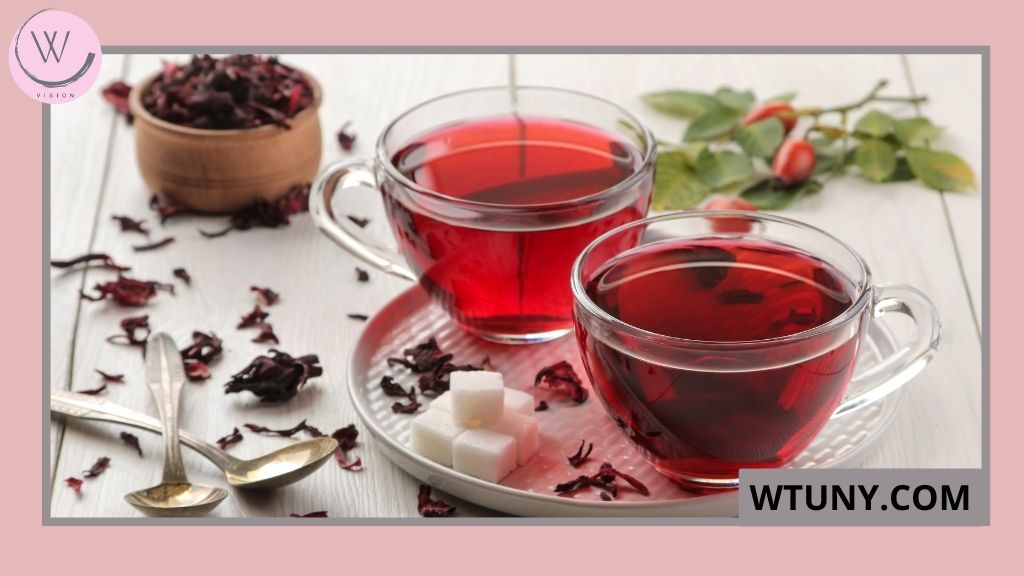
Here is a quick and easy recipe for hibiscus tea:
- To cook hibiscus, get the flowers, pass them through clean water, and dry them.
- Once the sepals (the petals fence) have been removed, be sure to store them in an airtight container.
- You can extract essential oil by rubbing dried bunches in between a wooden veneer. The next step is letting the water boil and then pouring it into the cup.
- Place the dry bunches in a basket or tea bag and thoroughly wet them for some minutes.
- While also getting the advantages of hibiscus tea, I would suggest you slightly add some sugar or lemon to make the taste even better.
Remember to consult your physician if you are planning to take a hibiscus tea or any other herbal supplement in high amounts.
Side effects of hibiscus tea
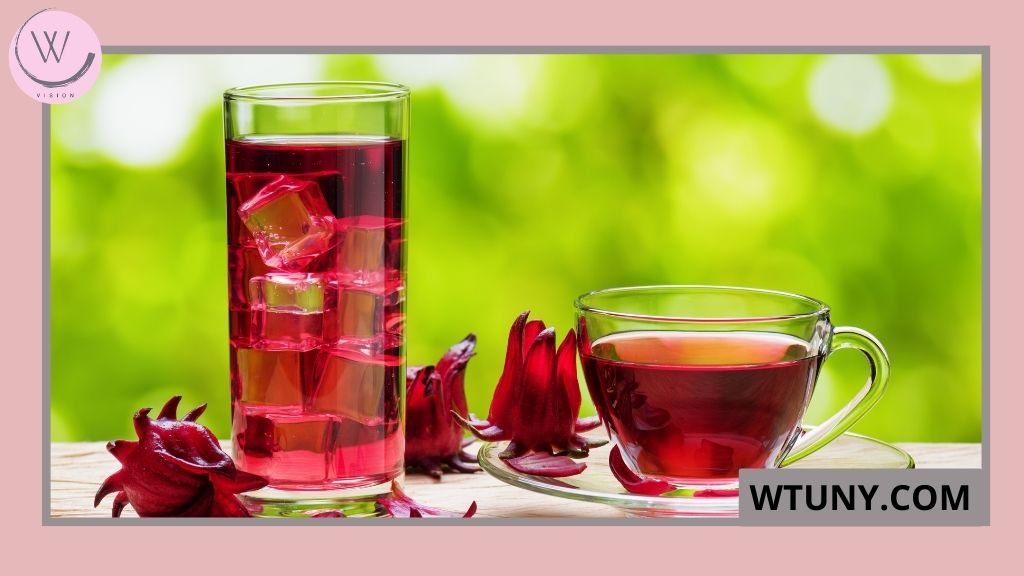
Studies have shown that hibiscus tea is considered safe when taken in sufficient quantities. Some side effects of hibiscus tea may include gas, upset stomach, and constipation. Consult your prescribed Ayurveda.
1. Estrogen level:
- Hibiscus tea can cause changes in estrogen levels because the beverage owns organisms that alter the levels of estrogen in the body.
2. Effect on the kidneys:
- An increased intake of hibiscus tea regularly reduces the optimal function of the kidneys since it causes oxalate accumulation that can engender the formation of kidney stones.
- Those with kidney diseases are advised to make an appointment with a doctor before taking hibiscus tea habitually.
3. Gas, upset stomach and constipation:
- Chronic intake of this tea is known, in extreme cases, to result in intense gas and even dehydration aspects can lead to constipation.
- Try to opt for a light meal and stay hydrated so you can minimize the side effects in the beginning.
4. General recommendations:
- Take faceape in moderation to avoid the chance of negative side effects.
- People with chronic conditions or health problems should discuss adjusting their diet by adding certain substances with their doctor before it becomes routine for them.
Precautions while drinking hibiscus tea
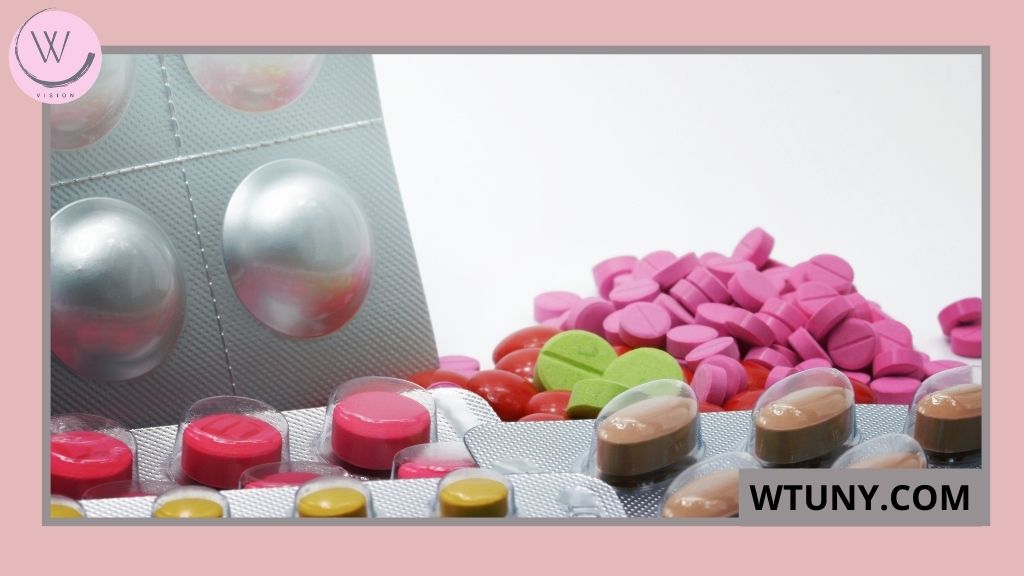
The following precautions should be taken before drinking hibiscus tea:
- Because hibiscus tea may not be recommended for pregnant or lactating women, they should be careful while taking it.
- In this case, it might be difficult to withstand the insulin levels after surgery only by drinking hibiscus tea. In this context, it is advisable to refrain from coffee for 2-3 days before surgery.
It is recommended you seek the opinion of your doctor before consuming the hibiscus tea particularly if you are already suffering from a medical condition.
CONCLUSION
When you step into the other-worldly realm of ruby hibiscus tea, you are greeted by an irascible unusual brew that serves as a refreshing and exciting alternative to plain tea and coffee and provides a unique bitterness. Already growing well in the south of Asia (India, Thailand, Vietnam, Mexico, Saudi Arabia, Malaysia, Sudan, Egypt, the Philippines, and Indonesia), cherry hibiscus is generally cultivated in its best places, which are Eastern Asia (China), the Middle East (Thailand, Sudan, Egypt), and Latin America (Mexico).
Through many cholesterol-lowering, blood sugar-regulating, and blood pressure-reducing studies investigating the benefits of this type of tea, the positive effects on health are becoming more apparent. It is admired as promising in preventing infections, and diseases and helps to manage weight, reduces inflammation, and may fight against cancer. Although more must be known to confirm these uses, perhaps research will yield these benefits as fact.

